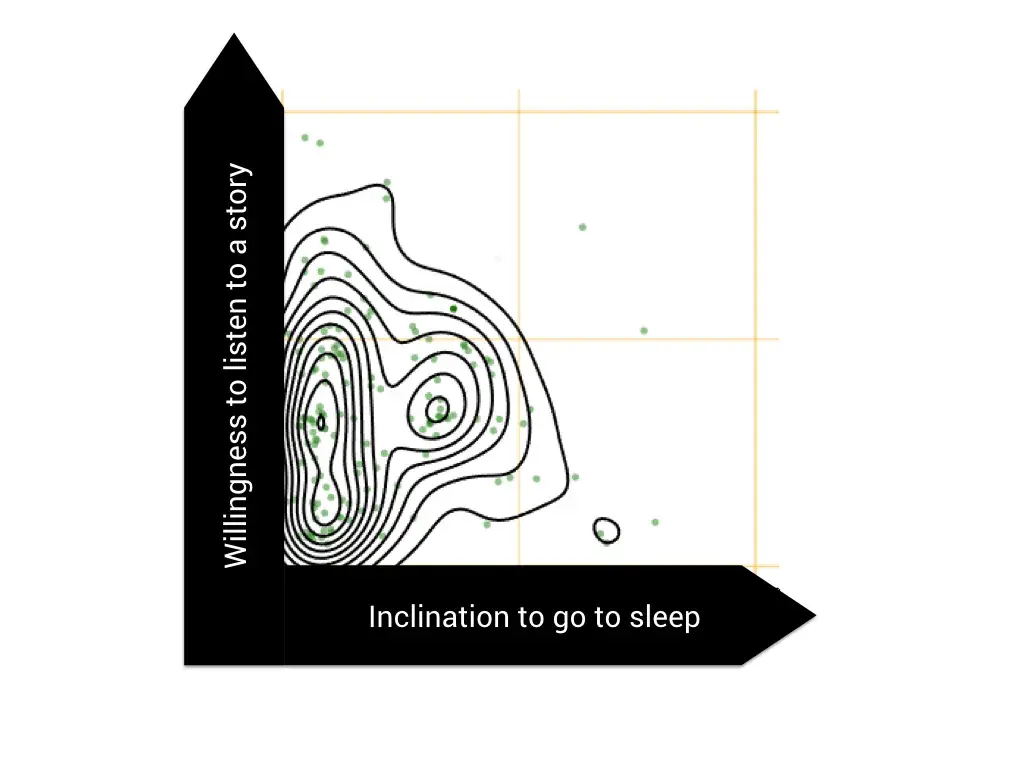It's not the Bad Apple, it's the Rotten Barrel
The University of Prius offered up another gem as I was driving to work this week - this time from ABC's great All in the Mind podcast. For copyright reasons, the 3rd July 2010 episode was a re-run of a 2007 piece with Philip Zimbardo, titled When Good People Turn Bad. Zimbardo was the Psychology Professor at Stanford University for the infamous Stanford Experiment - where students played the roles of guards and prisoners for a few days with controversial and disturbing results for all concerned. The podcast is good - his reflection on the flaws - and his flaws - in the experiment makes for interesting listening.
Philip Zimbardo: Yes, it's a very common phenomenon that's been widely studied by psychologists, I know, in Australia as well as in the United States. You know, when your behaviour does not mesh with your values and attitudes, typically what happens is your attitudes and values change to fit the behaviour rather than the other way around. Talmudic scholars would say get people to pray before you try to get them to believe, once they start praying they'll come to believe what they are doing. So a lot of evil done by good people is really more from the evil of inaction
Some of his conclusions are, to put it mildly, disputed - not least by a more rigorous, but televised version run in 2002: The Experiment.
But what did strike me was the degree that people do adapt to fit the community they're working in. It's something I've seen in organisations that I've worked in - my own values being subsumed in favour of other behaviours. Not necessarily because those people around me believe in the behaviours, but rather that they became accustomed to those - and are now passing on those behaviours. And the rituals we follow will shape the principles we hold - not necessarily the other way around.
(I'm not for a second invoking the insidious "following orders" argument - this is rather a recognition that values and behaviours can be subtly influenced and change over time, contrary to an individual's expressed values.)
Where this has particular resonance is when a department or organisation is malfunctioning. We assume that negative actions are deliberate, that individuals are at fault and that the overall organisation will spot these problems and resolve them. And the truth is that none of these necessarily hold true.
When it's an individual, it's easier to see - through surveys and other means - when there's someone that's out of sync. But seeing a group of people on a slow shift towards negative behaviours is far more difficult from without. It's hard to anticipate, hard to detect.
It's often not as a result of conscious decisions, but instead a steady, slow oneupmanship that started heading in the wrong direction and the competition dynamic took too far and too fast. So hunting for the person that made the decision is a poor approach - instead it results in scapegoating.
And often it arises from the environment - the cultural, the economic, the political and the organisational. Processes and targets too play a part - if it's easier to meet a target and fulfil a process than to do the right thing, there are few people who'll do the right thing. And the unintended consequences of targets and processes are regularly the things that trip us up.
The approach that we've been looking at comes back to narrative - what situations are "allowable" and which tip over into "inappropriate". It ties in with David Maister's idea that culture is set as much by what we tolerate as what we aspire to. It's entirely possible to gather stories from people about what's happening, but more useful to present them with examples of behaviour and ask them where those examples sit.
An "ethical audit" this way needs to be done with care - no clear answers from the stories (i.e. it's not obvious what the answer is - "should you lie to a customer to win a contract" is a bit too blunt!). But it allows for department-wide or even organisation-wide assessment of where people are, how ethical they are in their dealings and therefore what might be done.
- Narrative (100)
- Organisational culture (95)
- Communications (93)
- Complexity (77)
- SenseMaker (77)
- Changing organisations (42)
- Cognitive Edge (37)
- Narrate news (35)
- narrative research (32)
- Cognitive science (25)
- Tools and techniques (25)
- Conference references (24)
- Recommendations (20)
- datespecific (20)
- Leadership (17)
- Employee engagement (16)
- Storytelling (15)
- Culture (13)
- Events (11)
- UNDP (11)
- Cynefin (10)
- hints and tips (10)
- internal communications (8)
- Engagement (7)
- Knowledge (6)
- M&E (6)
- customer insight (6)
- tony quinlan (6)
- Branding (5)
- Stories (5)
- culture change (5)
- Children of the World (4)
- Dave Snowden (4)
- Changing organisations (3)
- Courses (3)
- GirlHub (3)
- Medinge (3)
- Travel (3)
- anecdote circles (3)
- development (3)
- knowledge management (3)
- merger (3)
- micro-narratives (3)
- monitoring and evaluation (3)
- presentations (3)
- BRAC (2)
- Bratislava (2)
- Egypt (2)
- ILO (2)
- Narattive research (2)
- Roma (2)
- Uncategorized (2)
- VECO (2)
- citizen engagement (2)
- corporate culture (2)
- counter-terrorism (2)
- customer satisfaction (2)
- diversity (2)
- governance (2)
- impact measurement (2)
- innovation (2)
- masterclass (2)
- melcrum (2)
- monitoring (2)
- narrate (2)
- organisation culture (2)
- organisational storytelling (2)
- research (2)
- sensemaker case study (2)
- sensemaking (2)
- social networks (2)
- speaker (2)
- strategy (2)
- workshops (2)
- 2012 Olympics (1)
- Adam Curtis (1)
- Allders of Sutton (1)
- CASE (1)
- Cabinets and the Bomb (1)
- Central Library (1)
- Chernobyl (1)
- Christmas (1)
- Disaster relief (1)
- Duncan Green (1)
- ESRC (1)
- Employee surveys (1)
- European commission (1)
- Fail-safe (1)
- Financial Times anecdote circles SenseMaker (1)
- FlashForward (1)
- Fragments of Impact (1)
- Future Backwards (1)
- GRU (1)
- Girl Research Unit (1)
- House of Lords (1)
- Huffington Post (1)
- IQPC (1)
- Jordan (1)
- Joshua Cooper Ramo (1)
- KM (1)
- KMUK2010 (1)
- Kharian and Box (1)
- LFI (1)
- LGComms (1)
- Lant Pritchett (1)
- Learning From Incidents (1)
- Lords Speaker lecture (1)
- MLF (1)
- MandE (1)
- Montenegro (1)
- Mosaic (1)
- NHS (1)
- ODI (1)
- OTI (1)
- Owen Barder (1)
- PR (1)
- Peter Hennessy (1)
- Pfizer (1)
- Protected Areas (1)
- Rwanda (1)
- SenseMaker® collector ipad app (1)
- Serbia (1)
- Sir Michael Quinlan (1)
- Slides (1)
- Speaking (1)
- Sutton (1)
- TheStory (1)
- UK justice (1)
- USS vincennes (1)
- United Nations Development Programme (1)
- Washington storytelling (1)
- acquisition (1)
- adaptive management (1)
- afghanistan (1)
- aid and development (1)
- al-qaeda (1)
- algeria (1)
- all in the mind (1)
- anthropology (1)
- applications (1)
- back-story (1)
- better for less (1)
- case study (1)
- change communications (1)
- change management (1)
- citizen experts (1)
- communication (1)
- communications research (1)
- complaints (1)
- complex adaptive systems (1)
- complex probes (1)
- conference (1)
- conferences (1)
- conspiracy theories (1)
- consultation (1)
- content management (1)
- corporate values (1)
- counter narratives (1)
- counter-insurgency (1)
- counter-narrative (1)
- creativity (1)
- customer research (1)
- deresiewicz (1)
- deterrence (1)
- dissent (1)
- downloads (1)
- education (1)
- employee (1)
- ethical audit (1)
- ethics (1)
- evaluation (1)
- facilitation (1)
- fast company (1)
- feedback loops (1)
- financial services (1)
- financial times (1)
- four yorkshiremen (1)
- gary klein (1)
- georgia (1)
- girl effect (1)
- girleffect (1)
- giving voice (1)
- globalgiving (1)
- harnessing complexity (1)
- impact evaluation (1)
- impact measures (1)
- information overload (1)
- informatology (1)
- innovative communications (1)
- john kay (1)
- justice (1)
- kcuk (1)
- keynote (1)
- leadership recession communication (1)
- learning (1)
- libraries (1)
- likert scale (1)
- lucifer effect (1)
- marketing (1)
- minimum level of failure (1)
- narrative capture (1)
- narrative sensemaker internal communications engag (1)
- natasha mitchell (1)
- navigating complexity (1)
- new york times (1)
- newsletter (1)
- obliquity (1)
- organisation (1)
- organisational development (1)
- organisational memory (1)
- organisational narrative (1)
- patterns (1)
- pilot projects (1)
- placement (1)
- policy-making (1)
- population research (1)
- presentation (1)
- protocols of the elders of zion. (1)
- public policy (1)
- public relations (1)
- qualitative research (1)
- quangos (1)
- relations (1)
- reputation management (1)
- resilience (1)
- revenge (1)
- ritual dissent (1)
- road signs (1)
- safe-fail (1)
- safe-to-fail experiments (1)
- sales improvement (1)
- satisfaction (1)
- scaling (1)
- seminar (1)
- seth godin (1)
- social coherence (1)
- social cohesion (1)
- solitude (1)
- stakeholder understanding (1)
- strategic communications management (1)
- strategic narrative (1)
- suggestion schemes (1)
- surveys (1)
- survivorship bias (1)
- targets (1)
- tbilisi (1)
- the future backwards (1)
- tipping point (1)
- training (1)
- twitter (1)
- upskilling (1)
- values (1)
- video (1)
- voices (1)
- weak links (1)
- zeno's paradox (1)
- November 2024 (1)
- October 2024 (1)
- September 2024 (2)
- March 2020 (1)
- November 2019 (1)
- August 2019 (1)
- May 2019 (2)
- April 2019 (1)
- November 2018 (2)
- May 2018 (2)
- March 2018 (1)
- February 2018 (1)
- December 2017 (1)
- October 2017 (3)
- September 2017 (1)
- July 2017 (1)
- March 2016 (1)
- February 2016 (1)
- January 2016 (1)
- July 2015 (3)
- May 2015 (1)
- March 2015 (2)
- February 2015 (1)
- December 2014 (1)
- November 2014 (1)
- September 2014 (3)
- August 2014 (1)
- July 2014 (2)
- June 2014 (6)
- May 2014 (3)
- April 2014 (3)
- March 2014 (5)
- January 2014 (4)
- December 2013 (2)
- October 2013 (1)
- August 2013 (1)
- June 2013 (1)
- May 2013 (1)
- March 2013 (1)
- January 2013 (2)
- November 2012 (2)
- October 2012 (4)
- September 2012 (3)
- November 2011 (3)
- August 2011 (1)
- July 2011 (1)
- May 2011 (4)
- April 2011 (3)
- March 2011 (4)
- February 2011 (8)
- January 2011 (8)
- December 2010 (2)
- November 2010 (5)
- October 2010 (8)
- September 2010 (5)
- August 2010 (2)
- June 2010 (1)
- April 2010 (2)
- January 2010 (1)
- December 2009 (2)
- November 2009 (3)
- October 2009 (1)
- January 2009 (1)
- July 2008 (4)
- June 2008 (1)
- March 2008 (2)
- January 2008 (3)
- November 2007 (4)
- October 2007 (1)
- September 2007 (1)
- August 2007 (4)
- May 2007 (3)
- March 2007 (1)
- February 2007 (6)
- January 2007 (3)
- November 2006 (8)
- October 2006 (8)
- September 2006 (2)
- August 2006 (5)
- July 2006 (13)
Subscribe by email
You May Also Like
These Related Stories

Argh. When a helpful example is kept confidential


